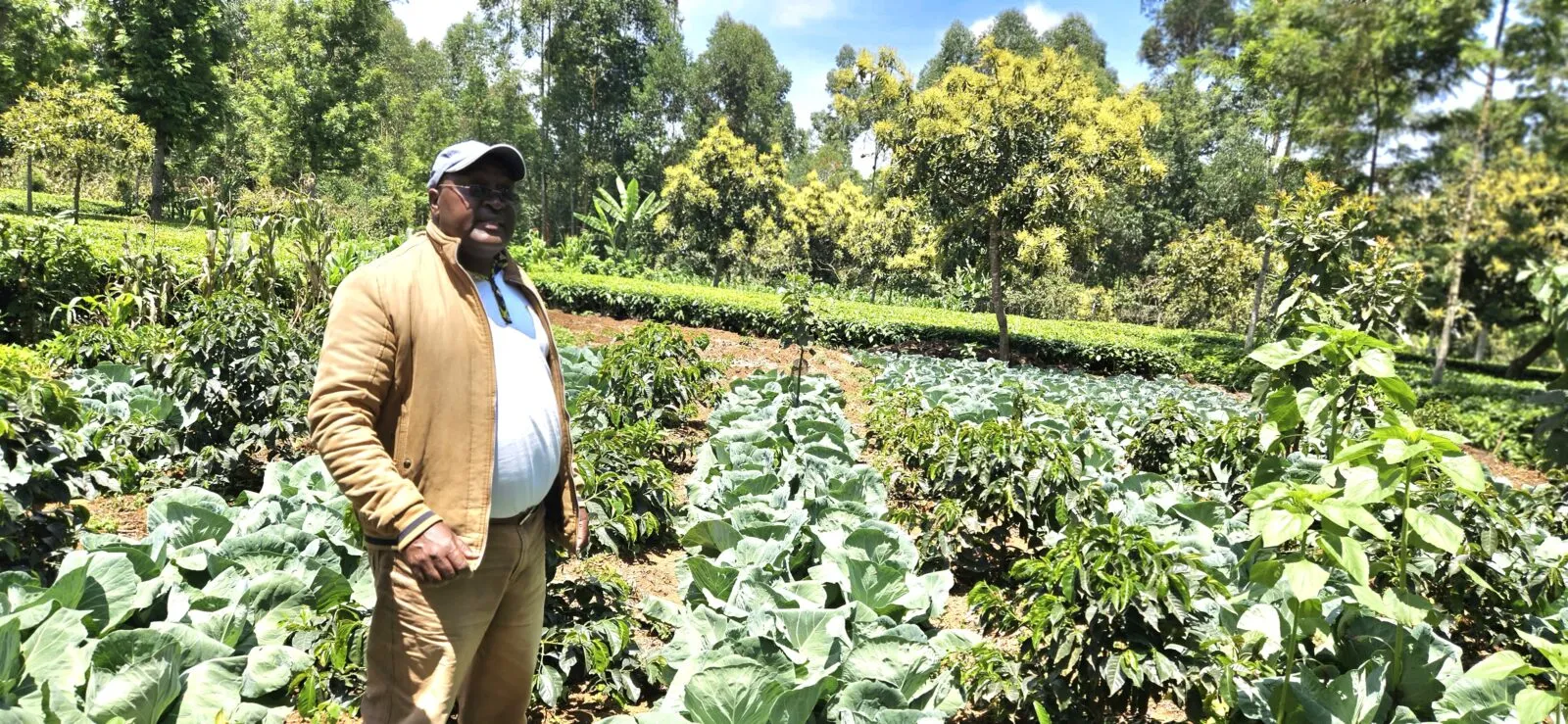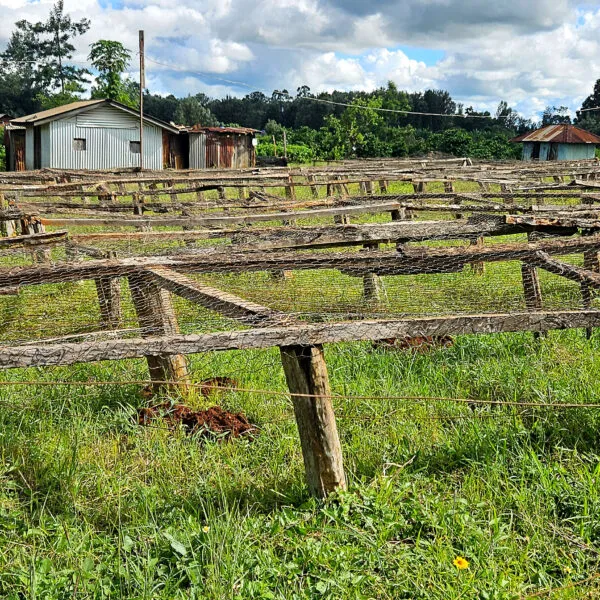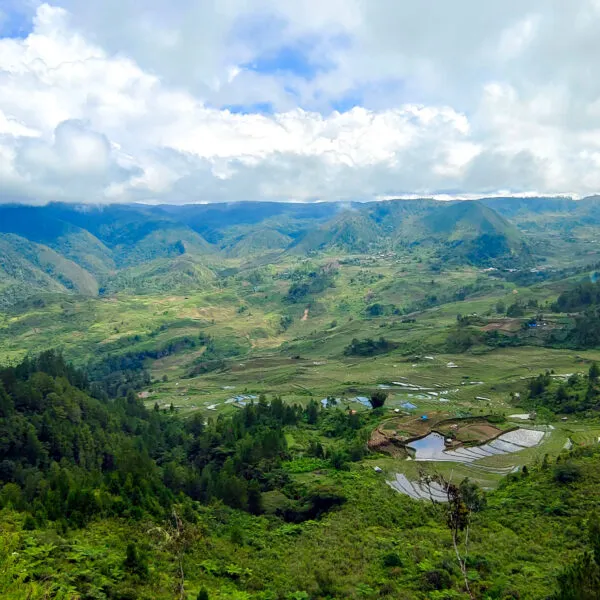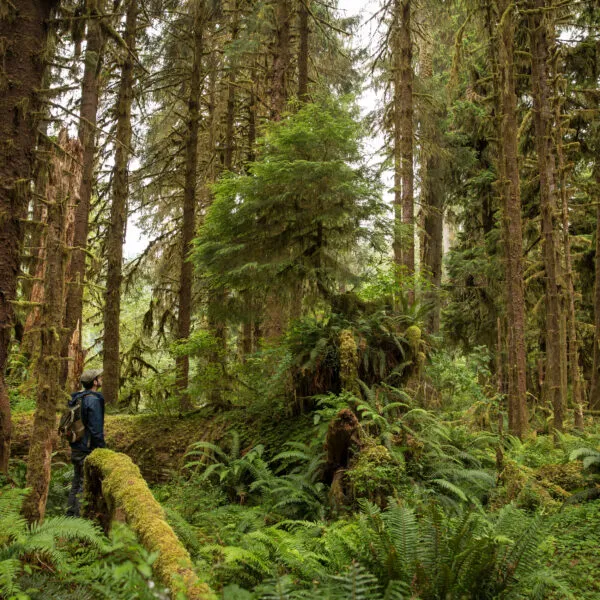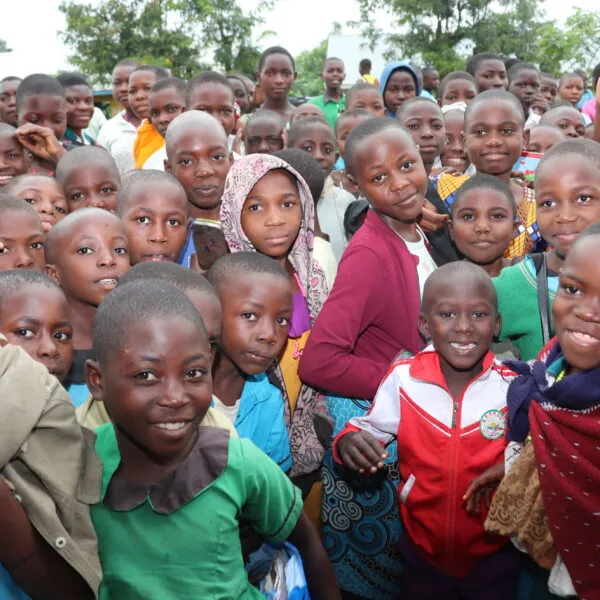Imagine for a moment that you are a farmer. You live on the forested slopes of Mount Kenya, in a lush landscape surrounded by glacier-capped peaks, rare animals like the albino zebra, and a tapestry of small farms. You work hard to grow a good crop of coffee, spreading expensive fertilizers and pesticides multiple times per year, but it seems like no matter what you do, the quality of your crop is falling. You’re frustrated and worried; this farm has been in your family for generations—and maybe now is the time to try something different.
Enter: Regenerative agriculture.
A more sustainable future for Mount Kenya
Regenerative agriculture is a farming approach that heals the earth, giving back to the land more than we take from it. Relatively simple techniques—like planting shade trees and a variety of other crops—can have a dramatic effect on the land by revitalizing soils, encouraging biodiversity, improving crop yields, and reducing the need for agrochemicals.
When the Rainforest Alliance launched our Mount Kenya Sustainable Landscape and Livelihoods (MSuLLi) program in 2020, we aimed to support Mount Kenya’s farming communities to adopt climate-smart and regenerative agriculture practices. In turn, this would help them to conserve and better manage their land to increase their incomes and adapt to climate change.
What does this look like for the people living and farming around Mount Kenya? We spoke to two of the farmers participating in the MSuLLi program to better understand how regenerative agriculture has added not just to their farms, but to their lives.
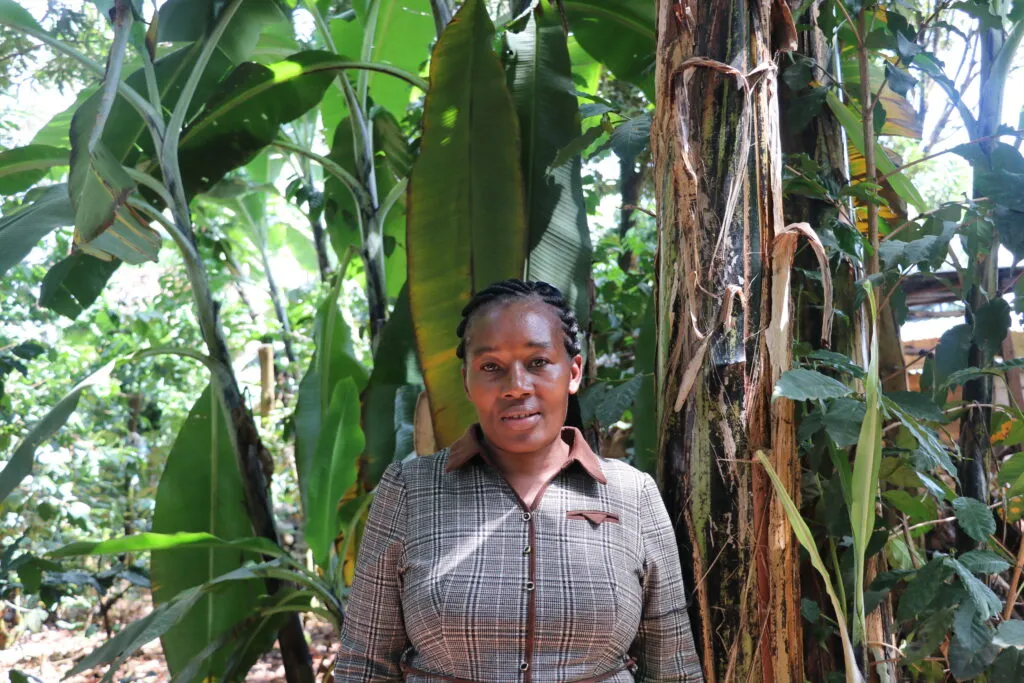
Meet Christine and Enos
Christine Karimi is a smallholder coffee farmer in Kathakwa village in Embu County. She is 47 years old, has two children, and farms on less than two acres of land. In 2013, she faced the devastating loss of her husband, leaving her to raise her children and earn a living on her own. Determined to provide a good life for her family, Christine dove into the world of coffee farming in 2017.
In the neighboring Kirinyaga County, Enos Muriuki is a 56-year-old farmer from Kimunye village. He began his farming journey with tea, inheriting a family farm and building a life there with his wife and two children. After struggling to earn enough from tea alone, Enos was determined to diversify and regenerate his farm for the sake of his family’s—and the land’s—future.
Transformation through regeneration
When Enos crossed paths with the Rainforest Alliance in 2021, he was quick to embrace regenerative agriculture. Since then, he has witnessed a remarkable increase in production—largely thanks to his efforts to reduce his reliance on external inputs; nurture the soil back to health; and replace older, disease-prone tea varieties with newer, drought-resistant variants. This has improved his farm’s stability and resilience in the face of market fluctuations and less predictable weather patterns due to climate change.
Not long after, in 2022, Christine also became inspired by the benefits of regenerative agriculture during a Rainforest Alliance training. After putting aside old monoculture techniques, Christine now grows avocados, macadamia, mangoes, and bananas alongside her coffee. These new plants not only enrich her farm and her family’s income, but also provide much-needed shade for her coffee trees. She replaced many of her old coffee trees with a more disease-resistant variety, reducing the amount of fungicide she must use and making the farm more sustainable and profitable.
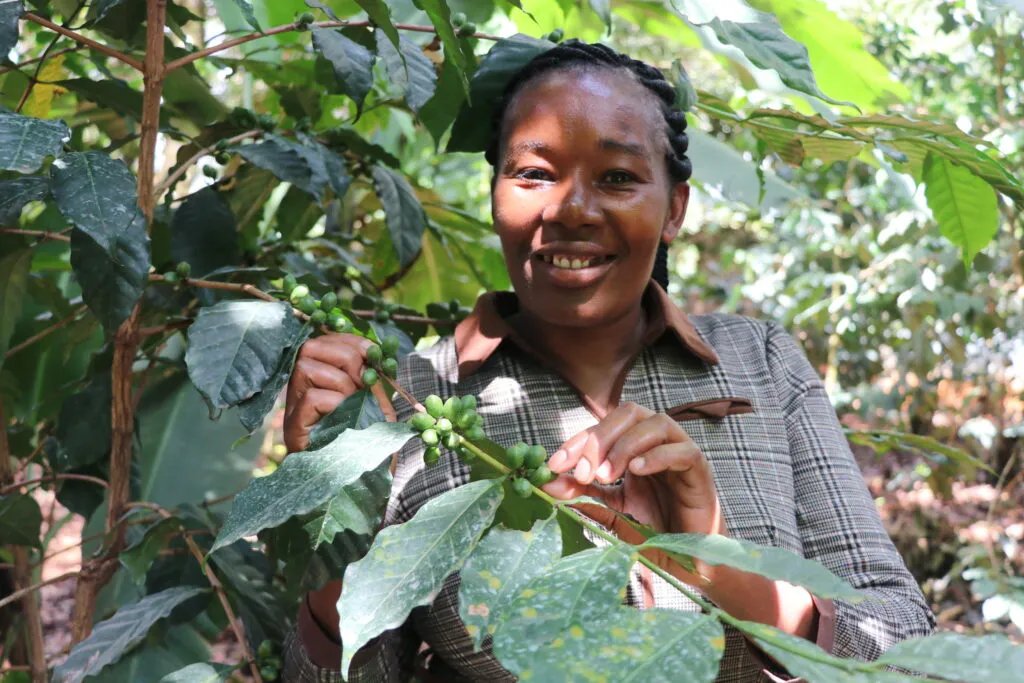
Sharing in their success
Since the training, Enos has steadily added to his tea plantation, venturing into kitchen gardening, beekeeping, and avocado and dairy farming. He works in harmony with nature to create a closed loop, where trash from one endeavour becomes the treasure of another: Livestock manure and fish waste feed the vegetables, chicken droppings nourish the tea plants, and bees pollinate the avocados. Nothing goes to waste, and everything has its purpose in Enos’ ecosystem. He is a true sustainability role model, leading the local Kirinyaga Avocado Cooperative and helping to spread the principles of a regenerative approach to farming.
The training program also helped to equip Christine with essential skills in regenerative farming, such as bench terraces to combat soil erosion, mulching, cover crops for moisture conservation, and canopy management for optimal fruit production. She is now a Trainer of Trainers for the MSuLLi program, passing on her knowledge to fellow farmers.
A game-changer for people, profits, and the planet
A crucial aspect of the MSuLLi project is connecting these farmers with buyers in the market: “As a Rainforest Alliance Certified farmer, producing good quality coffee has helped secure premium prices at auction,” says Christine. These increased profits have helped her educate her children, purchase real estate to rent out, and secure her family’s future.
Enos has enjoyed similar success, significantly growing his yearly income: “Before meeting the Rainforest Alliance, I used to practice conventional farming. The Rainforest Alliance has not just transformed my life, but that of my wife, children, and generations to come.”
Stories like Enos’ and Christine’s are living proof that regenerative agriculture is the key to a happier, healthier, more sustainable future. Its principles help to build thriving farms and communities, all while nourishing people and the land.
